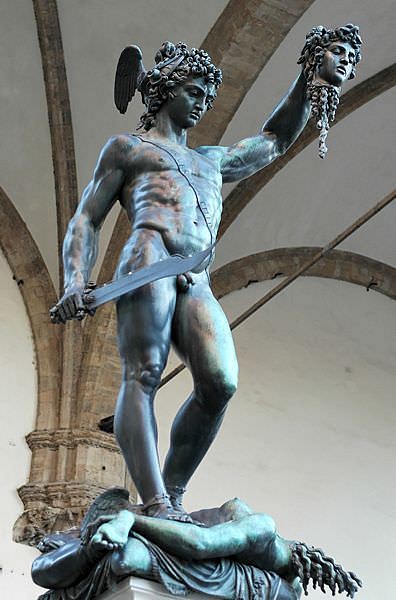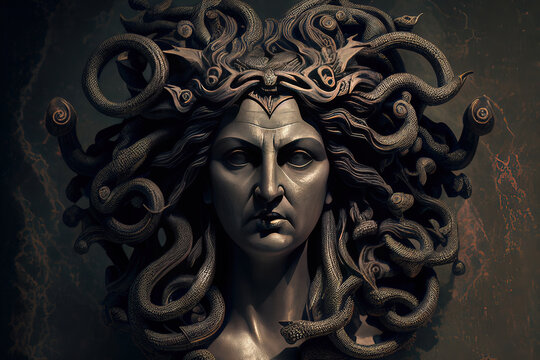Medusa - The Enigma of Beauty and Terror
Part I A Tale of Woe

In Greek mythology, few figures are as captivating and enigmatic as Medusa. Known for her serpentine locks and the petrifying gaze that turned onlookers to stone, Medusa embodies a duality of beauty and terror that has fascinated generations. This essay delves into the depths of Medusa's story, exploring her origins, her curse, and her symbolism in art and literature.
Medusa was one of the three Gorgons, monstrous sisters born from ancient sea deities, Phorcys and Ceto. While her siblings, Stheno and Euryale, were immortal, Medusa's story took a tragic turn. Her stunning beauty captivated the sea god Poseidon, who ravished her in the sacred temple of Athena. Consumed by rage and jealousy, Athena transformed Medusa into a monstrous creature, with venomous snakes replacing her luxurious hair.

Her transformation brought forth a curse that became her most notorious attribute—the ability to petrify anyone who dared to gaze upon her directly. The mere sight of her could turn mortals and even gods into lifeless stone. This curse made her a feared and avoided figure, residing in solitude on the outskirts of civilization, her presence eliciting a sense of terror and awe.
Medusa's complex symbolism extends beyond her frightful appearance and lethal powers. Scholars and artists have interpreted her story in diverse ways, allowing for multiple layers of meaning. Some see Medusa as a representation of feminine power and the fear men have towards strong, independent women. Others perceive her as a symbol of the destructive nature of desire and the consequences of unchecked passion.
This captivating story has inspired countless works of art and literature throughout history. From ancient Greek sculptures to Renaissance paintings and modern-day reinterpretations, Medusa's image has been immortalized in various mediums. Artists often emphasize her mesmerizing gaze, serpentine hair, and the dichotomy of beauty and horror she embodies. Medusa's presence in literature, such as Ovid's Metamorphoses, has further perpetuated her fame and established her as a timeless figure in popular culture.Medusa's relevance extends beyond the realms of myth and art, resonating in  contemporary society. Her story and symbolism continue to be explored and reimagined in feminist discourse, inspiring conversations about the representation of powerful women and reclaiming narratives. Medusa stands as a potent symbol challenging patriarchal norms, evoking discussions about the demonization of female power and the potential for reclamation.
contemporary society. Her story and symbolism continue to be explored and reimagined in feminist discourse, inspiring conversations about the representation of powerful women and reclaiming narratives. Medusa stands as a potent symbol challenging patriarchal norms, evoking discussions about the demonization of female power and the potential for reclamation.
Medusa’s story serves as a source of inspiration, inviting us to confront our deepest fears, contemplate the balance between beauty and horror, and reflect on the power dynamics embedded within our societies. Medusa's enduring allure lies in her ability to simultaneously captivate and terrify, reminding us of the complexities and contradictions of the human experience.


